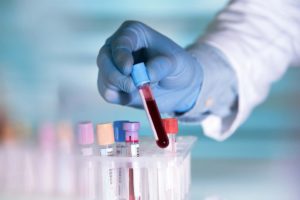Everyone knows that they should make a doctor's appointment, after discovering they are pregnant. But did you know it is also recommended to go to an obstetrician before you even try to achieve pregnancy? This has not always been standard practice, but as more women find themselves having trouble conceiving or become pregnant, it makes sense that they should check in with the state of their fertility in advance.

Some may find this unnecessary, but you would be surprised how much a doctor can help assist you in your earlier stages. The information you might discover could be invaluable, and when it comes to your health and the health of your baby, you can never be too safe. Fortunately, it is possible to take control of your reproductive health at any age, whether you're single or in a relationship. Whether you are considering getting pregnant or just looking towards the future.
Consulting a fertility expert for a check-up and a series of straightforward tests can offer you an accurate picture of where you stand, and help you make a plan.
Here's a checklist of fertility tests to talk to your doctor about.
General fertility tests
First, we have the front-line general fertility tests which give you a general snapshot of your current fertility. Most of these are simple blood tests to check that your body is functioning well, and to check your ovarian reserve: the quantity and quality of your remaining eggs.
STI screening (blood test)
Sexual health can play a large role in your fertility, so making sure that you do not have any lingering untreated infections is important. Scarring and inflammation from STIs and Pelvic Inflammatory Disease can block fallopian tubes and make it very difficult to become pregnant.
Hormone levels
Hormones are fundamental to your reproductive function, so you will want to make sure that your body is correctly producing everything you need to conceive. Your fertility expert may order some or all of the following hormone tests.
- Thyroid levels (TSH) (blood test): A quick check of your thyroid levels can offer your doctor a lot of valuable information about potential fertility issues.
- Anti-mullerian hormone (AMH) (blood test): AMH is a hormone produced in your ovaries by tiny early-stage follicles as they grow to a stage where they can potentially produce eggs for ovulation. From there the doctor can make a judgement on whether you are still likely to produce viable eggs.
- Follicle-stimulating hormone (FSH) (blood test): Produced by your pituitary gland, this is one of the most significant hormones related to ovulation. Its job is to stimulate growth and maturity in your ovarian follicles so that an egg is produced and released during ovulation.
- Luteinizing hormone (LH) (urine or blood test): Levels of LH rise quickly just before ovulation, about halfway through your cycle, which is known as an LH surge. Depending on the stage of your cycle, and LH test can tell whether you have ovulated, or indicate issues with menstruation or ovulation.
- Estradiol (blood test): Secreted by maturing follicles, estradiol is a form of estrogen, the major female reproductive hormone. High levels of estradiol are another sign that your body is having to work especially hard to produce eggs, and can mean your ovarian reserve is getting low, or they could be pointing to an issue with the thyroid.
- Prolactin (blood test): Prolactin is related to your thyroid and pituitary function which regulates and inhibits FSH and gonadotropin-releasing hormone (GnRH).
- Antral follicle count (ultrasound): Antral follicles are just large enough to be seen and counted with the help of an ultrasound. The more antral follicles you have, the more microscopic primordial follicles (holding immature eggs) you are likely to have.

Further diagnostic fertility tests for women
For many women, the above tests are enough to determine the state of their ovarian reserve and their current level of reproductive function. If the tests do indicate a problem, your fertility specialist is likely to order further testing to get you a clear diagnosis and help you formulate a plan of treatment or fertility preservation.
- Cervical mucus test: Problems with cervical mucus can get in the way of conception. A cervical mucus test allows fertility experts to examine a sample of cervical mucus to ensure that everything is in order.
- Hysterosalpingogram (HSG): A hysterosalpingogram is a special type of x-ray conducted with a radio-opaque dye to allow your doctor to see whether there are any blockages in your fallopian tubes or uterus which could affect your ability to get pregnant or carry a pregnancy to term.
- Hysteroscope: If an HSG test shows that there may be an issue with your uterus, a hysteroscope can be used to allow a fertility specialist to look for scarring, growths, or other abnormalities and take pictures of any findings.
- Saline hysterogram (SHG): Also known as a saline infusion sonogram (SIS), water ultrasound, or sono-hysterogram, this test takes place during a transvaginal ultrasound and allows the fertility expert to check for fibroids, polyps, or other growths in the uterine wall.
- Laparoscopy: Performed under general anaesthesia, where tiny fibre optic camera is inserted into the abdominal cavity allowing the surgeon a clear view of the ovaries, fallopian tubes, and uterus, and can be used to look as well as correct problems such as scarring, adhesions, and endometriosis deposits.
- Endometrial biopsy: Performed when doctors suspect that the lining of your uterus may not be thick enough to allow a fertilized egg to implant. A tiny sample of tissue is scraped from the lining (endometrium) to check whether hormones are working to thicken the lining.

Asking your doctor about fertility testing can empower you to make strong choices about your reproductive future, whether that means changing your timeline for starting a family, or looking into fertility preservation options such as egg freezing. If all your results are great, it can give you the peace of mind you need. If you think you are likely to want children in the future, don't hesitate to look into your fertility status now. Waiting to find out how fertile you are until there is already a problem may mean losing precious months or even years by the time you are ready to start treatment.



